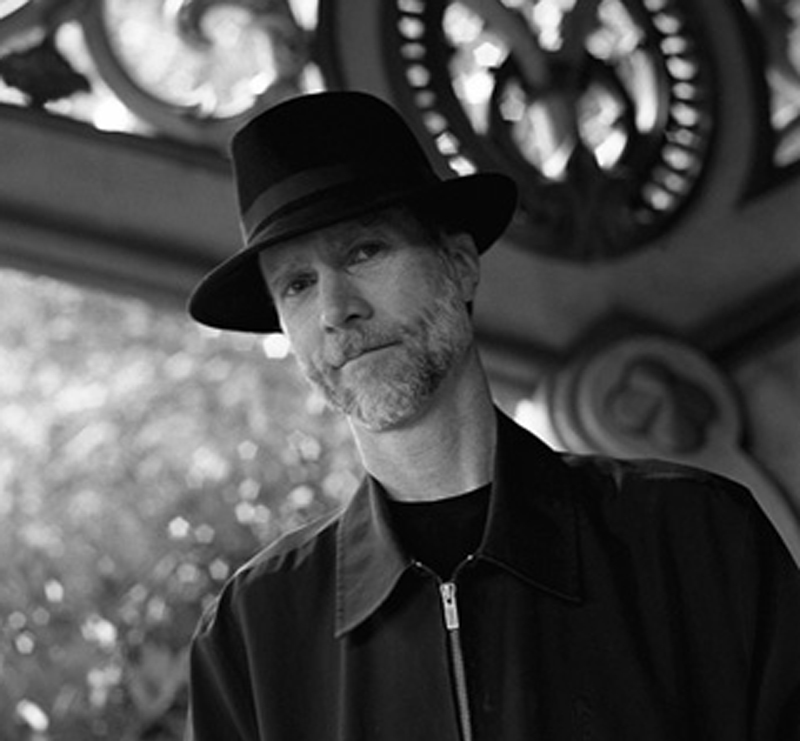|
|

|
"Life on this earth first emerged from the sea. And as the polar ice melts and sea level rises, we humans find ourselves facing the prospect that, once again, we may quite literally Become Ocean." — John Luther Adams "Become Ocean" by John Luther Adams, a member of the first graduating class from California Institute of the Arts in Valencia (Music BFA 1973), won the 2014 Pulitzer Prize in Music (announced April 14, 2014). It also won the 2014 Grammy Award for Best Contemporary Classical Composition, presented at the 57th Annual Grammy Awards ceremony on Feb. 8, 2015. The Pulitzer Prize Board, as reported by Columbia University, called the work "a haunting orchestral work that suggests a relentless tidal surge, evoking thoughts of melting polar ice and rising sea levels." The prize was awarded for a "distinguished musical composition by an American that has had its first performance or recording in the United States during the year." Commissioned by the Seattle Symphony Orchestra, "Become Ocean" premiered June 20, 2013. Premiere performances were also conducted in Portland, Ore., and at the Spring for Music Festival at Carnegie Hall.
"Become Ocean" About John Luther Adams From JohnLutherAdams.com Called "one of the most original musical thinkers of the new century" (Alex Ross, The New Yorker), John Luther Adams is a composer whose life and work are deeply rooted in the natural world. Adams composes for orchestra, chamber ensembles, percussion and electronic media, and his music is recorded on Cold Blue, New World, Mode, Cantaloupe, and New Albion. A recipient of the Heinz Award for his contributions to raising environmental awareness, Adams has also been honored with the Nemmers Prize from Northwestern University "for melding the physical and musical worlds into a unique artistic vision that transcends stylistic boundaries." JLA's music is heard regularly all over the world. The Chicago Symphony, the Radio Netherlands Philharmonic, and the Melbourne Symphony have performed his Dark Waves for large orchestra and electronic sounds. Inuksuit for up to ninety-nine percussionists has been performed in New York City's Morningside Park and at the Park Avenue Armory, as well as many other outdoor venues throughout the U.S., Canada, and Australia. Adams is the author of Winter Music (2004), a collection of essays, journal entries and reflections on his life and work in Alaska. The subject of his second book is The Place Where You Go to Listen (2009) his installation at the Museum of the North that translates geophysical data streams into an ever-changing environment of sound and light. The Farthest Place (2012), a book-length critical study of JLA's music, includes essays by Kyle Gann, Steven Schick, Glenn Kotche and many other prominent musicians and scholars. Adams has taught at Harvard University, the Oberlin Conservatory, Bennington College, and the University of Alaska. He has been composer in residence with the Anchorage Symphony, Anchorage Opera, Fairbanks Symphony, Arctic Chamber Orchestra, and the Alaska Public Radio Network, and he has served as president of the American Music Center. Born in 1953, Adams grew up in the South and in the suburbs of New York City. He studied composition with James Tenney and Leonard Stein at the California Institute of the Arts, where he was in the first graduating class (in 1973). In the mid-1970s he became active in the campaign for the Alaska National Interest Lands Conservation Act, and subsequently served as executive director of the Northern Alaska Environmental Center.
|
John Luther Adams
|
The site owner makes no assertions as to ownership of any original copyrights to digitized images. However, these images are intended for Personal or Research use only. Any other kind of use, including but not limited to commercial or scholarly publication in any medium or format, public exhibition, or use online or in a web site, may be subject to additional restrictions including but not limited to the copyrights held by parties other than the site owner. USERS ARE SOLELY RESPONSIBLE for determining the existence of such rights and for obtaining any permissions and/or paying associated fees necessary for the proposed use.


